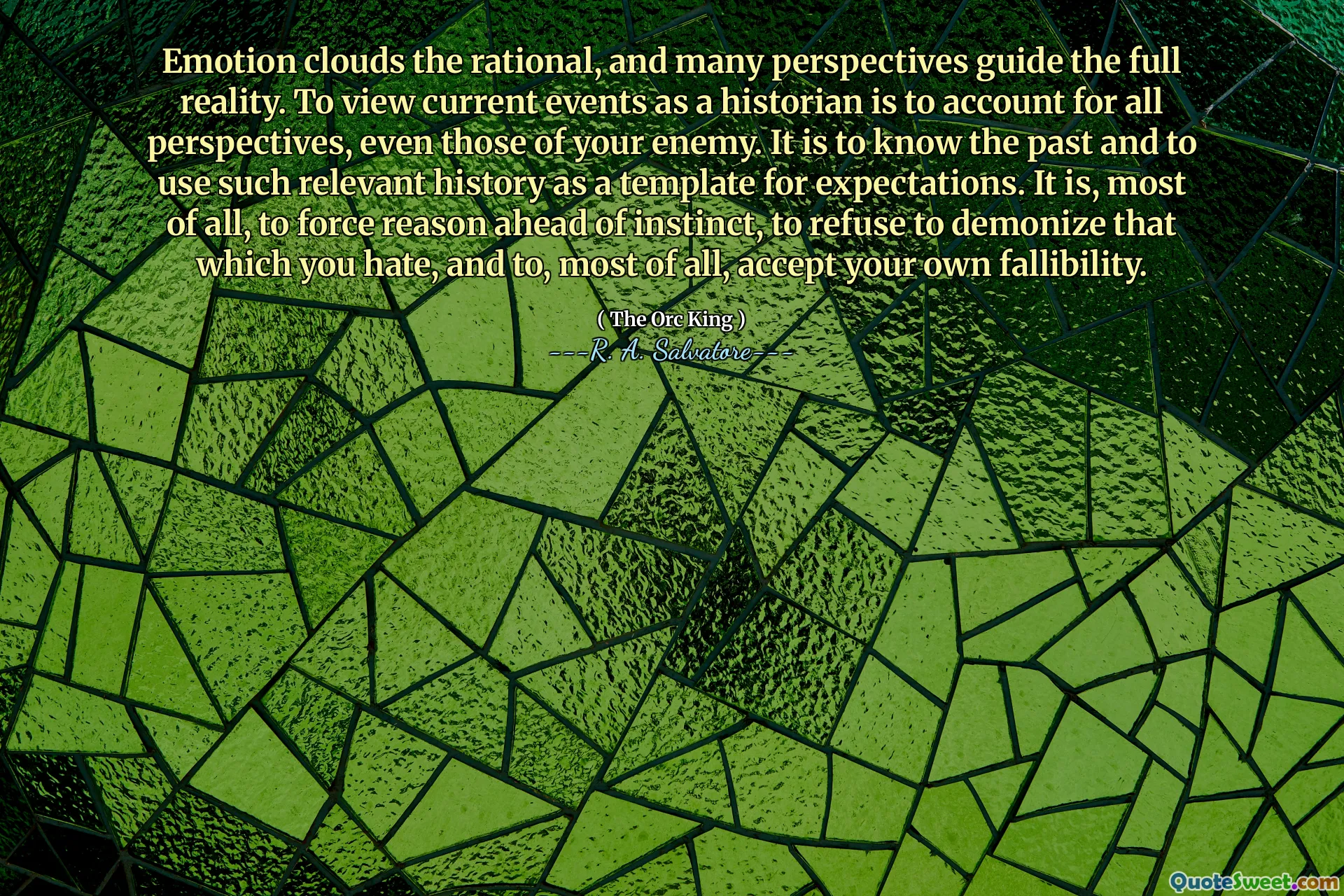
Emotion clouds the rational, and many perspectives guide the full reality. To view current events as a historian is to account for all perspectives, even those of your enemy. It is to know the past and to use such relevant history as a template for expectations. It is, most of all, to force reason ahead of instinct, to refuse to demonize that which you hate, and to, most of all, accept your own fallibility.
This quote profoundly underscores the vital interplay between emotion, reason, and perspective when seeking to understand not only current events but broader realities. It calls attention to the dangers of allowing emotion to override rational thought, warning how such a state can obscure judgment and distort understanding. Emphasizing a historian's approach, it advocates for an inclusive evaluation of all viewpoints, including those opposed to one’s own beliefs. This broad-mindedness nurtures a more holistic grasp of reality, fostering empathy and tolerance.
Moreover, the reference to knowing the past highlights the importance of historical context as a guide for interpreting present circumstances and anticipating future developments. This reliance on history is not mere nostalgia but a practical framework for expectations and decision-making.
The quote also champions the triumph of reason over instinct—a difficult yet necessary discipline. Humans are naturally inclined to quick judgments and to demonize opposing forces, especially amidst conflict or fear. The admonition to avoid demonizing those we hate serves as a powerful reminder of the complexity of human motives and the value in seeking to understand rather than vilify.
Most importantly, it calls for self-awareness and humility by accepting one’s own fallibility. This acceptance is crucial for genuine growth, open-mindedness, and productive discourse. Taken together, these messages encourage a mindset committed to thoughtful analysis, empathy, and intellectual honesty, values essential not only for historians but for anyone navigating the complexities of human affairs.






